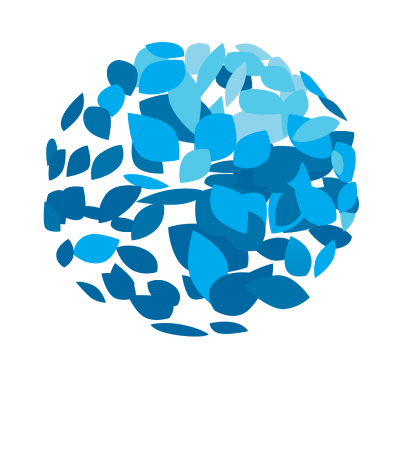The world is changing. In virtually all aspects of society, we’re seeing more awareness of how we impact the environment, and a shift towards a stronger focus on sustainability – and the corporate world needs to be part of that change.
There’s a growing body of stakeholders, including investors and regulators, who recognise that environmental, social and governance issues need to be reported on and managed.
Enter ESG reporting, which takes the traditional concept of reporting on financial performance, and extends it to a wider range of non-financial issues that are material (i.e. relevant) to an organisation. ESG reporting is used by companies to explain their positive – and negative – impacts on these issues.
The practice of disclosing environmental, social and corporate governance data is becoming increasingly ubiquitous, as it becomes mandatory for large, listed companies in many parts of the world.
Because these large companies are required to report on their supply chains, smaller companies that aren’t covered directly by legislation are also feeling the pressure to prepare their own ESG reports.
But regulatory compliance is far from the only reason why businesses should embrace this practice. Effective ESG reporting not only showcases ambition, action and impact, it also provides crucial insights to aid decision making; facilitates access to resources; and helps develop and refine an effective and strategic approach to sustainable operation.

Speaking at the 2023 Inner Circle Forum hosted by EarthCheck, Ovolo Group CEO Dave Baswal said that while compliance is important, the primary reason the hotel brand has embraced ESG reporting is that it’s good for business.
“Creating value is what drives us,” he said. “At the end of the day, that’s what your investors want to see, that’s what your employees want to see, and that’s what the community you’re a part of wants to see. They want you to create value.”
Here are four ways ESG reporting can add significant value to your business.
Innovations and efficiencies
Implementing ESG initiatives can lead to cost savings and increased operational efficiency. In fact, a meta-review of over 2000 studies on this topic found that a majority show a positive relationship between ESG and financial performance.
“For example, energy-saving measures and waste reduction efforts can lower utility expenses and improve profitability,” Dave Baswal told the Inner Circle Forum.
“When you’re reporting something, you have to collect data, and data is very powerful. The more detail you go into with data collection, the more you learn about your business, and you start making changes.
“ESG reporting drives innovation, because when you collect data, you find where the gaps are, and you find better ways to do things.”

Dr Michael Duggan, a Director in Ashurt’s Risk Advisory practice with expertise in a broad range of ESG and corporate social responsibility areas, agreed that these savings and operational improvements are a major benefit of ESG reporting.
“The innovation and efficiency that comes from ESG reporting and disclosure just doesn’t get enough play,” he told the Inner Circle Forum.
“Focusing on sustainability really does provide an innovation dividend to businesses. Look at the tourism industry – hotels report on everything, whether it’s how many towels get washed through to how much water is consumed, because it’s an industry that doesn’t like to waste anything. They want to use everything they have. As a result, the innovation I’ve seen across the tourism industry is second to none.
“I remember visiting a resort in Bali once where they were harvesting old tyres from around the country and turning them into aggregate road base. They were doing that about 15 years ago, and ideas like that are only just now being embraced by infrastructure companies looking to secure government procurement contracts.”

Graham Miller, a Professor of Sustainability at Nova Business School in Lisbon, recently prepared a report on the changing ESG landscape for the EarthCheck Research Institute. He agrees that implementing ESG performance can lead to cost savings, innovation and efficiencies – but he says that’s just the tip of the iceberg.
“Increasingly, ESG performance is moving beyond a cost centre or a cost saving endeavour,” he writes, “and towards accessing green bonds and finances, revenue generation and business growth.”
Access to capital and sustainable finance
ESG performance has become an increasingly important factor in decisions by investors and financial institutions.
The Confederation of British Industry (CBI) claims that two-thirds of investors now take ESG factors into consideration when making an investment decision. S&P Global Ratings have also identified a link between ESG practices and creditworthiness.
“The European Banking Authority is requiring ESG factors to be given consideration through the period of any loan, encouraging firms to move from short-term to longer term horizons,” Graham writes.
“As demand from investors for companies with high ESG performance increases, so the cost of capital for those companies falls further.”
While ESG reporting is key to attaining ‘green finance’, it’s also important that these reports are verified by third-party audits, as banks and investors will seek assurances that companies aren’t engaging in ‘greenwashing’ – the practice of exaggerating ESG performance.
Graham cites Langham Hospitality Investments as an example of how to go about obtaining sustainable finance the right way. Langham used ESG performance data to secure a HK$7.5 billion sustainability-linked loan – crucially, this data was validated by EarthCheck’s third-party auditing and certification process.
Brendan Herriott, Director of Sustainable Finance at the Commonwealth Bank (CBA), confirms that businesses that take their ESG commitments seriously – whether they’re a multinational or a microbusiness – will benefit from access to capital.
“Increasingly, we’re seeing that being able to demonstrate your sustainability credentials is an important ingredient in how you raise capital, be that bank finance or otherwise,” he told attendees at the Inner Circle Forum.
“From CBA’s perspective, our biggest impact is through the emissions of our customers. We measure these as part of our Scope 3 emissions – in banking, we call them our ‘financed emissions’.
“We’re now measuring and estimating our clients’ emissions on a per-dollar basis across our whole portfolio, and by 2025, we’re targeting emissions reductions on those portfolios that will account for at least 75 per cent of our financed emissions footprint.
“The ultimate message is the ESG maturity of your business equals access to capital, and lowers the cost of that capital, and therefore equals business value.”
Risk mitigation
The evidence shows that firms with strong ESG performance are better placed to face risk – a particularly important benefit as we face an increasingly risky and uncertain future.
A 2019 report published by the Center for Financial Studies (CFS) found that a portfolio of investments with high ESG scores will have a lower risk profile than a portfolio with lower ESG scores.
This seems to be particularly true at times of crisis. An OECD Paris report found that during the 2008 global financial crisis, and at the outset of the COVID-19 pandemic, higher performing ESG companies enjoyed both lower risk and stronger financial performance than lower scoring companies.
This reduction in risk doesn’t just apply to the stock market, either.
“Research shows strong ESG performance leads to lower legal risk and more favourable settlements from prosecutors,” Graham Miller writes.
“Interestingly, suppliers face lower levels of environmental and social related lawsuits when their customers have higher ESG performance.”
Enhanced reputation and brand value
Transparent and repeated communication of a company’s ESG performance helps to build trust with stakeholders – whether those stakeholders are investors, suppliers, business partners, guests, employees or community members.
Ovolo Group CEO Dave Baswal noted that positive ESG performance and reporting can enhance your brand reputation, and position your business as a responsible and ethical one.
“This can attract socially conscious customers,” he told attendees at the Inner Circle Forum, “and strengthen your relationships with corporate clients who prioritise ESG factors.”
Conversely, Graham Miller’s ESG research paper makes the point that ESG-related controversies can be taken as a sign of poor overall management, and can have an adverse effect on a business’ reputation and brand value.
A Clarity AI study of 10,000 controversial incidents and more than 1500 organisations over a four-year period found that ESG-related controversies led to stock underperformance of between 2 to 5 per cent after six months.
When the incidents related to negative environmental impacts, specifically, that figure dipped to an 8.9 per cent drop in stock market performance.
How to get started with ESG reporting
Graham Miller says that effective ESG reporting is founded on transparent communication – but knowing what, exactly, to disclose can be a challenge.
“Reporting non-financial ESG performance for the first time can appear daunting at first,” he writes. “Knowing what, why and how to disclose, and navigating existing and emerging regulatory requirements or disclosure frameworks.”
An effective ESG report should be an extension of a sustainability strategy, which should be guided by a materiality assessment – a risk assessment that helps an organisation understand its impact on non-financial issues, and determine which of these issues to prioritise.
But even an organisation without a materiality assessment in place can still begin communicating its ESG performance while it works to formalise its strategy and focus its efforts over time.
Graham says inaction is the greatest risk of all – and the only way to lower that risk is to begin ESG reporting.
“ESG reporting, just like any part of a business’ sustainability effort, is a journey,” he writes, “and the key to effective reporting is founded on genuine and transparent disclosures, especially to increasingly informed target audiences.
“For organisations starting this process, there is no need to reinvent the wheel or try to do too much. Less is often more: focussing effort is more likely to create tangible positive impact and improve clarity in reporting.
“Reporting organisations should also accept that not everything may be possible at first, but new methods, tools and frameworks are emerging to support organisations to achieve their disclosure goals.”
EarthCheck, the world-leading certification, consulting and advisory group, provides the support services to help organisations report with clarity in a transparent and genuine manner, and develop a strategic approach for making a positive impact.
While ESG reporting can require investment in systems and processes to collect, measure and manage large amounts of data, the MyEarthCheck online platform manages a suite of sustainability metrics to make data management simple and mitigate human error.
“Managing sustainability data across the visitor economy for over three decades gives EarthCheck a unique understanding and familiarity with data reported by organisations,” Graham writes.
“Those keen to understand more about how to progress should contact EarthCheck’s experts, who can help to navigate through.”
Ultimately, it’s important to remember that even the most thorough and effective ESG report is just a means to an end – and what really matters is the positive change that these reports help to facilitate.
“I don’t believe ESG is about writing reports,” Dave Baswal told the Inner Circle Forum. “The reports are important – it’s important that we collect data, that we set and achieve targets and that we report on our achievements. That’s all very important.
“But the purpose is to make a real change that impacts our planet and our communities. These reports aren’t just a formality. There is a reason we’re doing this, there is a need for change, and we need to get there pretty quickly.”
Key takeaways
- ESG reporting can lead to cost savings and increased operational efficiency.
- By demonstrating a genuine commitment to ESG principles and providing transparent ESG reporting, your business can attract socially responsible investors, access sustainable finance options and lower the cost of capital.
- Businesses that can demonstrate strong ESG performance are better positioned to mitigate risk.
- Positive ESG performance can enhance your brand reputation, and build trust among your stakeholders.
- ESG reporting is about progress, not perfection – don’t overcomplicate the process and just get started.
- EarthCheck can assist you to collect and collate data and begin ESG reporting.
Ready to get started on your ESG journey? Read Graham Miller’s report on the changing ESG landscape for the EarthCheck Research Institute, and contact EarthCheck’s experienced team for assistance with ESG reporting.







